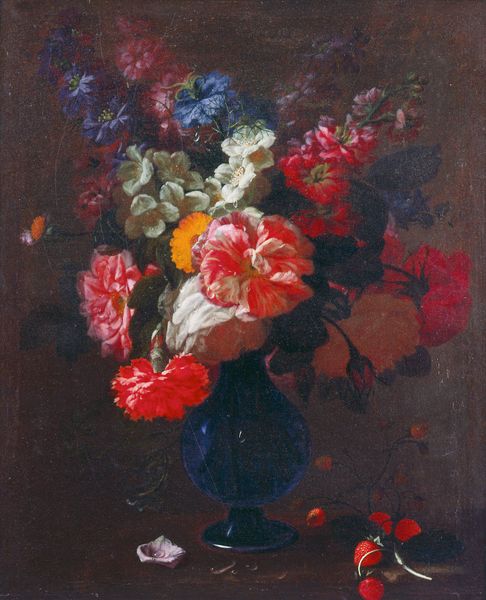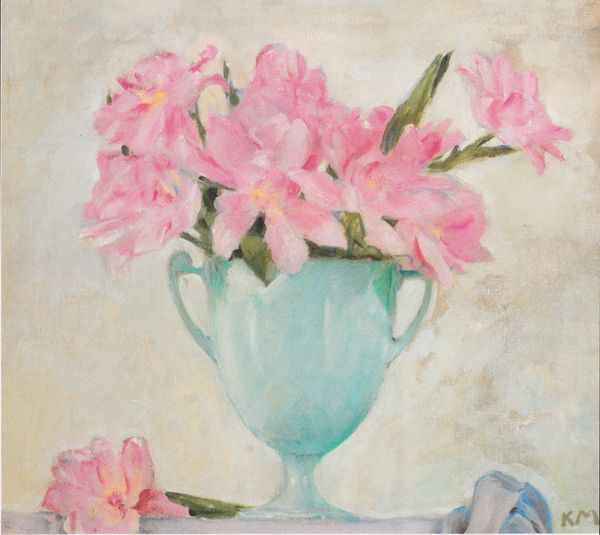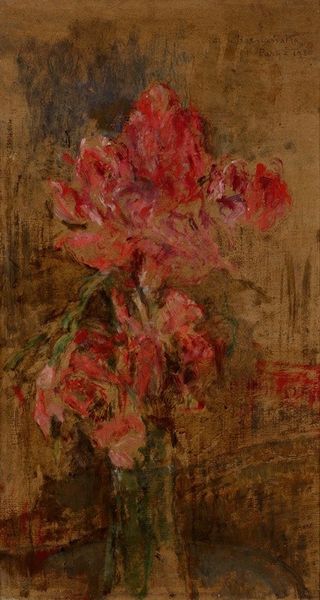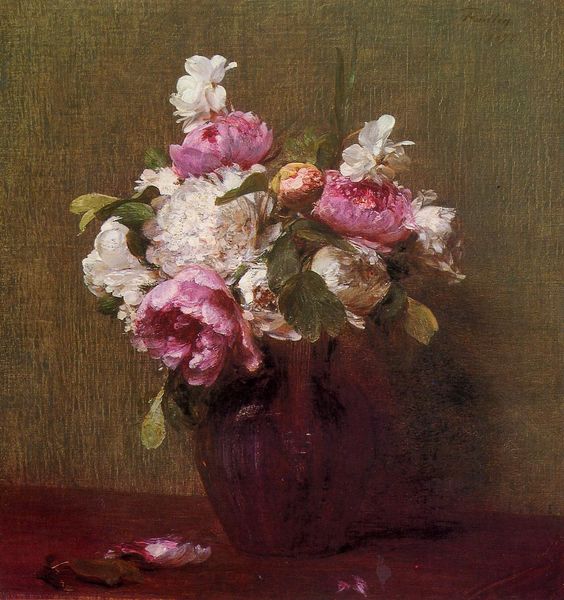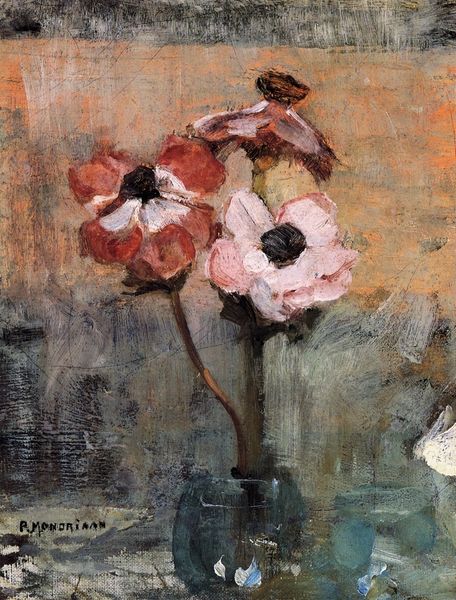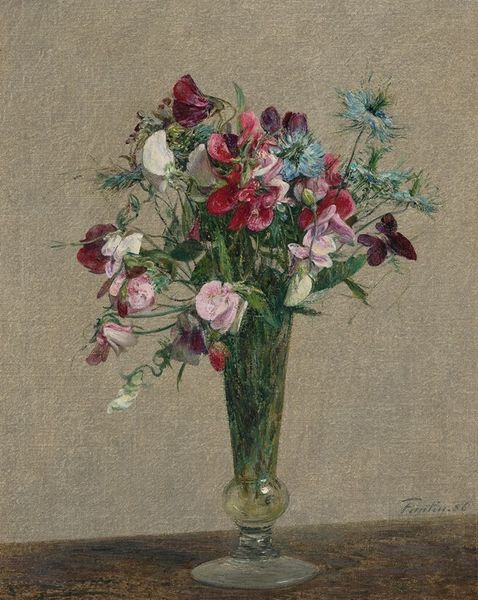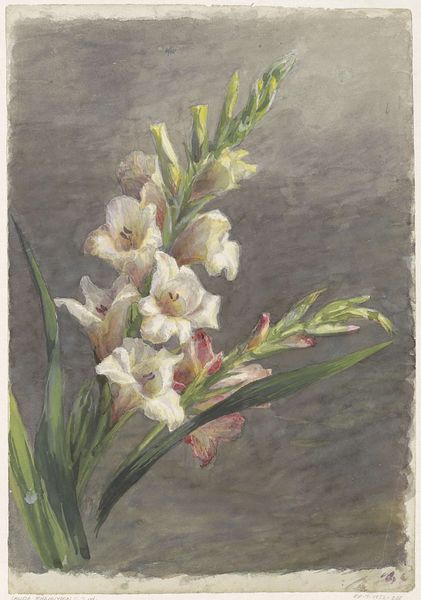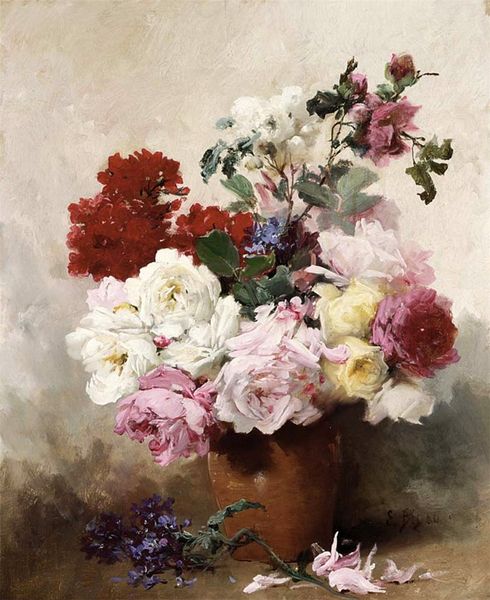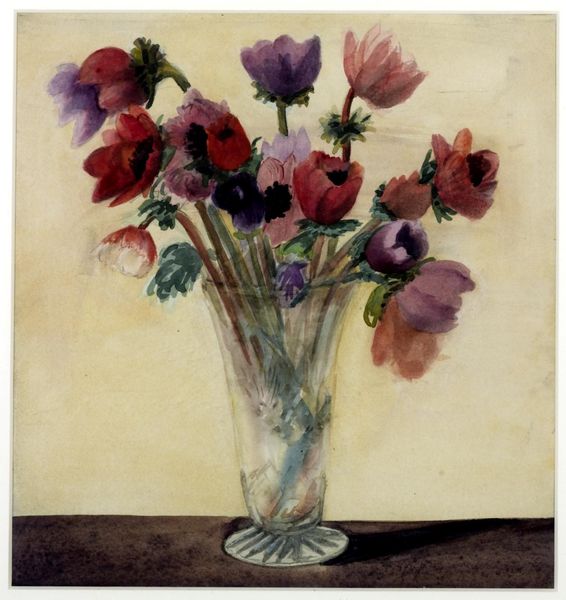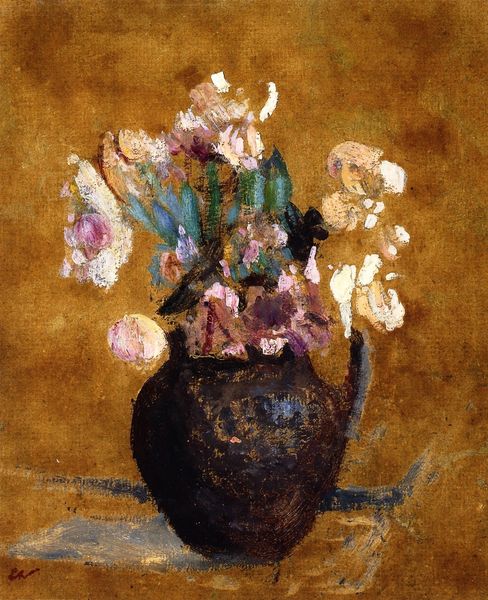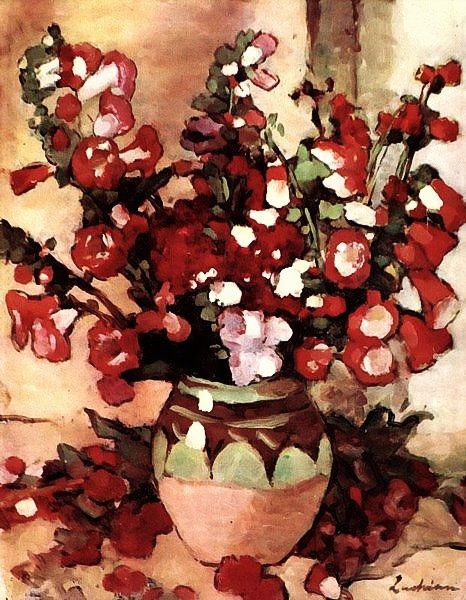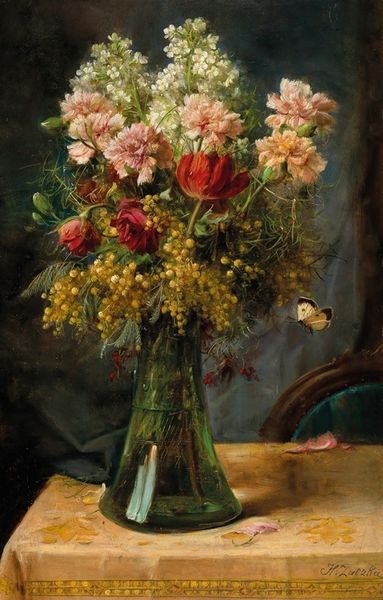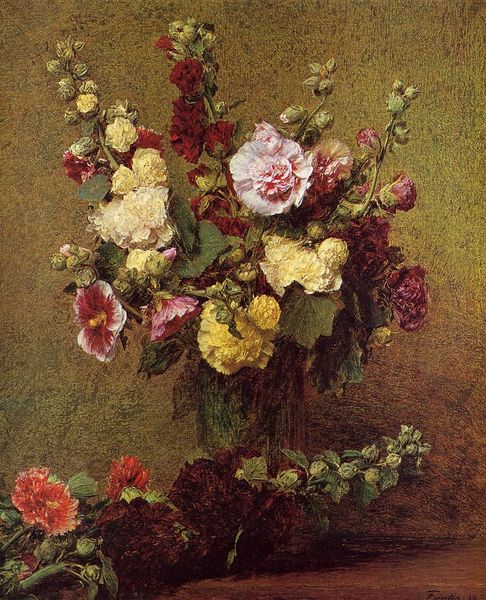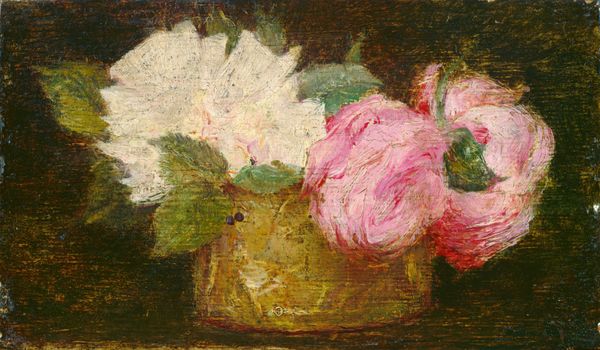
photography
#
still-life
#
gouache
#
garden
#
abstract painting
#
water colours
#
flower
#
possibly oil pastel
#
photography
#
fluid art
#
underpainting
#
plant
#
painting painterly
#
watercolour bleed
#
watercolour illustration
#
watercolor
Copyright: Public domain
Curator: Here we have Tom Roberts' "Poppies," created around 1921, a delicate dance of watercolors and gouache. Editor: Instantly, I’m drawn into the tenderness of the scene; it feels quiet, introspective. The muted colors almost whisper of bygone summers. Curator: Roberts painted quite a few still lifes during this period, moving away, some critics have said, from his earlier, more well-known plein air subjects depicting rural life and national identity to the more accessible art market of the period. Editor: Oh, there's that familiar shift – the artist bowing to the economic realities. Yet, I'm almost grateful because this move created a dreamy intimacy. I mean, just look at how the light filters through the petals, they are like fragile paper. Did you notice the almost Impressionistic feel of the brushstrokes? Curator: It's that application that's so intriguing. The watercolor bleeds so expertly into each other and yet forms each and every individual element—we can see Roberts experimenting with conveying depth and texture through this handling of a lighter medium. Editor: Makes you wonder if those delicate colors and those flowers that we’re only allowed to gaze at for a short season—whether he knew of the passing of beauty, and how brief this life could be? Or perhaps was that simply his way of speaking to those who purchase art during a bleak period after the war? Curator: His choice to depict something beautiful to sell after such a period of tragedy isn't surprising considering how deeply entrenched art markets became after that era, catering to that market's values is exactly how he sold, not simply what he had to say. I always return to these questions about how society truly shapes every last corner of artistry. Editor: So even these innocent poppies had a sales motive, did they? Haha... regardless of the artist's intent or the market's influence, I'm walking away with a little bit more beauty than when I came in. Curator: Agreed, art is always filtered and open to each beholder. It prompts crucial discourse—and a new question each time that we engage.
Comments
No comments
Be the first to comment and join the conversation on the ultimate creative platform.
